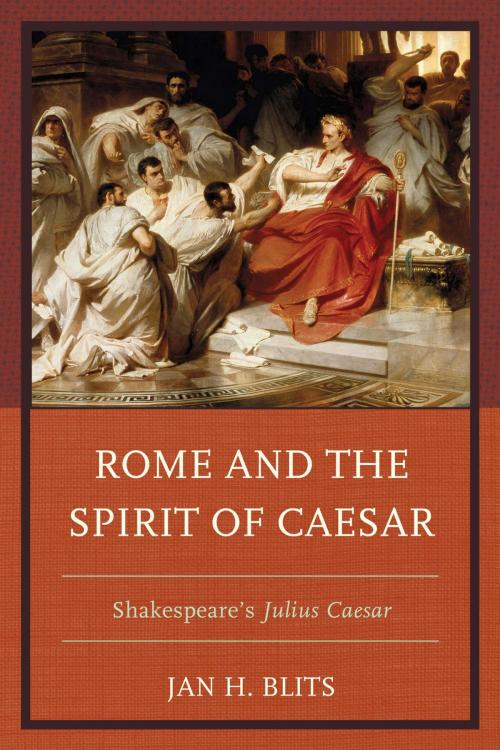Rome and the Spirit of Caesar
Shakespeare’s Julius Caesar
Fiction & Literature, Literary Theory & Criticism, British, Nonfiction, Social & Cultural Studies, Political Science, Politics, History & Theory| Author: | Jan H. Blits | ISBN: | 9781498525275 |
| Publisher: | Lexington Books | Publication: | September 17, 2015 |
| Imprint: | Lexington Books | Language: | English |
| Author: | Jan H. Blits |
| ISBN: | 9781498525275 |
| Publisher: | Lexington Books |
| Publication: | September 17, 2015 |
| Imprint: | Lexington Books |
| Language: | English |
Rome and the Spirit of Caesar, providing a fresh interpretation of Julius Caesar, is a thorough examination of Shakespeare’s presentation of the final throes of republican Rome’s political decay and demise and the rise of Caesarism.
As in his previous studies of Shakespeare’s plays, Blits, pursuing his distinctive approach, follows Caesar through, scene by scene, speech by speech, line by line, reaching his conclusions by closely examining Shakespeare’s text. Approaching the play as a coherent whole, he examines the whole in the light of its parts and the parts in the light of the whole. Since each presupposes the other, he considers the whole and its parts together. He carefully relates the play’s details to its major themes and grounds the themes in, and supports them by, the details.
While intruding no literary theory on the play, Blits brings out the historical and perennial political substance that Shakespeare deliberately put into it. He shows that Caesar is a work of historical poetry, shaped by Shakespeare’s mastery of the Roman histories and the Hellenistic philosophies bearing directly on his subject.
Topics include the love of honor and fame, heroic ambition and glory, virtue and honor, civic strife, political murder, the role of political oratory, public versus private interests, Caesarism, the decay of liberty, loyalty, demagoguery, luxury, spiritedness, superstition, Stoicism and Epicureanism, manliness, friendship, moral intimidation, political imprudence, foreign and civil war, universal empire, and the advent of Christianity.
Rome and the Spirit of Caesar, providing a fresh interpretation of Julius Caesar, is a thorough examination of Shakespeare’s presentation of the final throes of republican Rome’s political decay and demise and the rise of Caesarism.
As in his previous studies of Shakespeare’s plays, Blits, pursuing his distinctive approach, follows Caesar through, scene by scene, speech by speech, line by line, reaching his conclusions by closely examining Shakespeare’s text. Approaching the play as a coherent whole, he examines the whole in the light of its parts and the parts in the light of the whole. Since each presupposes the other, he considers the whole and its parts together. He carefully relates the play’s details to its major themes and grounds the themes in, and supports them by, the details.
While intruding no literary theory on the play, Blits brings out the historical and perennial political substance that Shakespeare deliberately put into it. He shows that Caesar is a work of historical poetry, shaped by Shakespeare’s mastery of the Roman histories and the Hellenistic philosophies bearing directly on his subject.
Topics include the love of honor and fame, heroic ambition and glory, virtue and honor, civic strife, political murder, the role of political oratory, public versus private interests, Caesarism, the decay of liberty, loyalty, demagoguery, luxury, spiritedness, superstition, Stoicism and Epicureanism, manliness, friendship, moral intimidation, political imprudence, foreign and civil war, universal empire, and the advent of Christianity.















